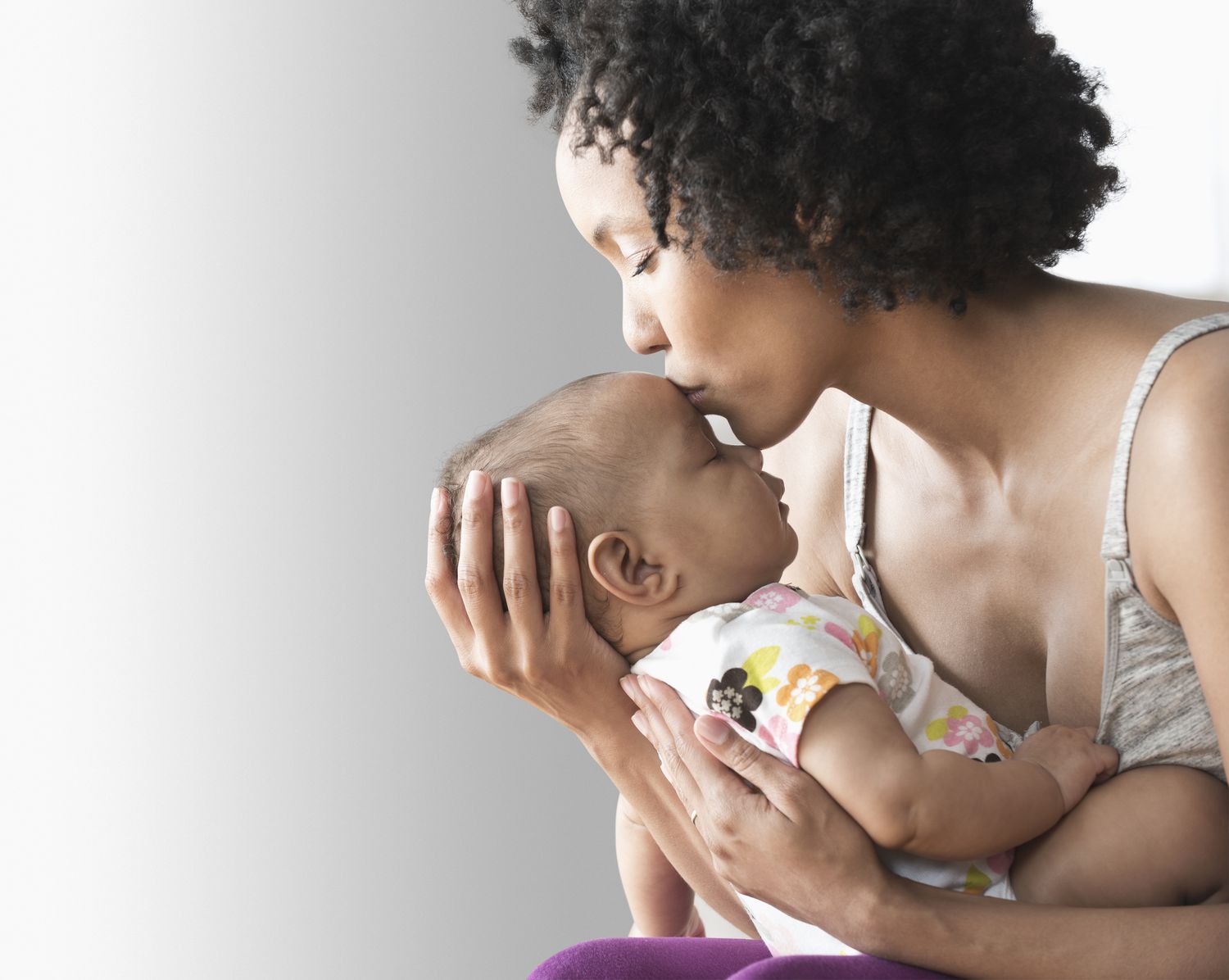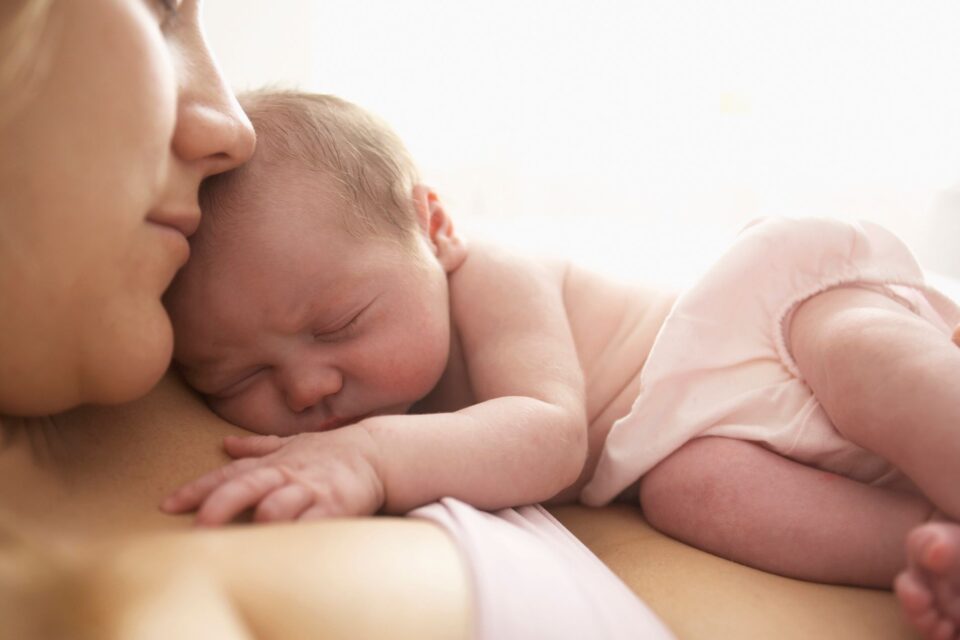The connection between a mother and her baby is one of the most profound and enduring bonds in the human experience.
This intricate relationship begins the moment a baby is born and continues to evolve throughout both of their lives. It’s a bond that transcends the physical, embodying emotional, psychological, and instinctual layers that contribute to the overall well-being and development of the child.
In this article, we will delve into the multifaceted nature of this bond, exploring its origins, its impact on both mother and child, and the factors that influence its strength and character.
The Genesis of Bonding

The initial connection between a mother and her baby is often thought to begin in the womb, with prenatal bonding playing a significant role in the early establishment of this relationship.
Through the rhythms of heartbeat, the sway of movement, and even the sound of the mother’s voice, a baby starts to become attuned to their mother before they even enter the world.
This early connection sets the stage for the intense bonding process that occurs post-birth, a period characterized by intense physical and emotional interactions that serve to strengthen the initial prenatal bond.
The Role of Hormones
The biological underpinnings of the mother-baby bond are fascinating and highlight the role of specific hormones in facilitating this connection.
Oxytocin, often dubbed the ‘love hormone’, plays a pivotal role in this process. Released in large quantities during childbirth and breastfeeding, oxytocin fosters an immediate sense of attachment and love in the mother, encouraging protective and nurturing behaviors.
This hormonal surge not only facilitates bonding but also plays a crucial role in the physiological processes of childbirth and lactation. Learn more about the role of hormones in the mother-baby bonding process and the importance of feminine health and hygiene at https://rythmoftheworld.com/.
The Power of Touch

The power of touch cannot be understated in the context of the mother-baby bond. Skin-to-skin contact, especially immediately after birth, has been shown to have numerous benefits for both the mother and the baby. For the baby, it helps regulate body temperature, heart rate, and stress levels.
For the mother, it enhances the bonding process, encourages milk production, and can even reduce the risk of postpartum depression. This tactile connection forms a critical component of the bonding process, providing a foundation for a secure attachment.
Communication and Responsiveness
The bond between a mother and her baby is significantly strengthened by responsive and attuned communication. Even before a baby can speak, they communicate through cries, coos, facial expressions, and body language. A mother’s ability to understand and respond to these cues is paramount in building trust and security. This responsive interaction not only fortifies the bond but is also crucial for the baby’s emotional and social development.
The Impact of Bonding on Development
The implications of the mother-baby bond extend far beyond the immediate postnatal period, influencing various aspects of a child’s development.
Secure attachment, fostered by a strong bond, is associated with a plethora of positive outcomes, including enhanced emotional regulation, improved cognitive development, and better social relationships. This foundational relationship sets the groundwork for how a child will navigate and perceive the world around them.
Challenges to Bonding

While the mother-baby bond is a natural process, it’s not without its challenges. Factors such as maternal mental health issues, particularly postpartum depression, can interfere with the bonding process.
Additionally, premature birth or medical complications that necessitate separation after birth can pose significant hurdles to immediate bonding. Recognizing and addressing these challenges is crucial in ensuring that both mother and baby receive the support they need to foster a healthy connection.
The Role of the Environment
The environment surrounding a mother and her baby can significantly influence the bonding process. Supportive partners, family members, and healthcare providers can play a pivotal role in facilitating a positive bonding environment.
Conversely, stressful or unsupportive environments can hinder the bonding process. Ensuring a nurturing environment is crucial for both the physical and emotional well-being of the mother and baby.
Building Resilience in Children
The resilience of a child, their ability to withstand stress and bounce back from adversity, is deeply influenced by the strength of their bond with their mother.
This secure attachment acts as a safe base, empowering the child to explore, learn, and grow with confidence. A child who knows they have a reliable, loving support system is more likely to take on challenges and develop independence.
The essence of building this resilience lies in the mother’s emotional availability and responsiveness. It’s about providing a consistent sense of security that encourages the child to face the world, knowing they have a safe emotional haven. This foundation not only helps the child in their early years but also supports their emotional and psychological well-being as they navigate more complex challenges in life.
Cultural Perspectives on Bonding

Cultural norms and practices also play a significant role in shaping the mother-baby bond. Different cultures have unique traditions, practices, and beliefs surrounding childbirth and child-rearing, which can influence the bonding process. Understanding and respecting these cultural perspectives is essential in providing appropriate support to diverse families.
Nurturing the Bond Over Time
The bond between a mother and her baby, while rooted in the early days of life, is not static. It continues to evolve and deepen over time through shared experiences, challenges, and milestones. The role of the mother adapts as the child grows, but the foundational bond remains a constant source of comfort, security, and love.
In conclusion, the bond between a mother and her baby is a complex, dynamic, and profoundly impactful relationship that lays the foundation for a child’s emotional, psychological, and physical development.
It is a testament to the power of human connection, shaped by biological instincts, emotional responses, and environmental factors. Understanding and supporting this bond is crucial in fostering healthy development and nurturing the well-being of both mother and child.



